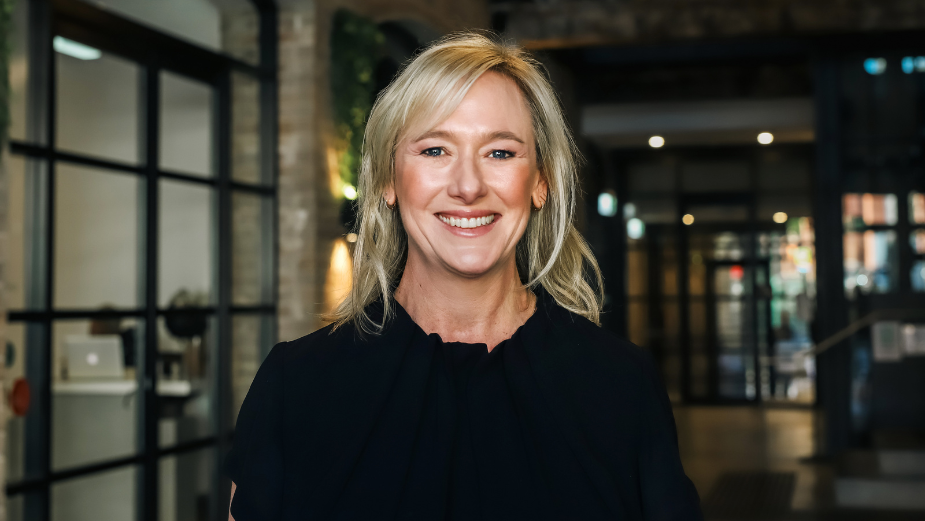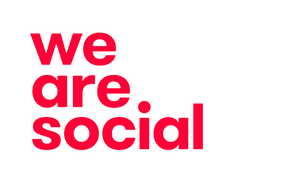
Bossing It: Suzie Shaw on the power in transparency and building culture in a hybrid environment

Suzie Shaw is CEO of the socially-led creative agency, We Are Social, heading up its 60-strong Australian team. She is a creative leader with extensive comms and marketing experience across a broad range of categories, including financial services, travel and tourism, telco, FMCG and more. She worked for 14 years in London advertising agencies, before returning to her native Australia in 2011 to continue her career.
Suzie is passionate about championing the progress of women in leadership and is the founder of SWIMM Australia (Senior Women in Media and Marketing). She is also a member of Greenpeace's General Assembly and contributes to their efforts to exert social, political, economic and political power to shepherd a just and healthy planet and remove power from climate destroyers.
LBB> What was your first experience of leadership?
Suzie> My first meaningful leadership experience was when I was promoted to Head of New Business at TBWA\LONDON. I’d been working at that agency for about six years and on return from my first maternity leave, I was promoted into this new role that required me to lead marketing and new business for the agency. It positioned me as part of the management team, reporting to the CEO. Looking back now, I think I had a number of innate skills that positioned me well for the role, but I really didn’t know what I was doing and no one stopped to train me. I had to figure it all out for myself - how to network, what to prioritise, internal and external stakeholder management, leading a multidisciplinary team etc. It was a steep learning curve at the time, but I learnt a lot and gained skills that set me up well for general management.
LBB> How did you figure out what kind of leader you wanted to be – or what kind of leader you didn’t want to be?
Suzie> I’ve definitely learnt most from leaders I’ve worked for, and the mistakes I’ve made. In reality, I’m still figuring it out. As a leader, I think it’s important to use your intuition, but things change all the time, from corporate cultures to the economic climate and this all requires you to continually adapt to ensure you’re being effective.
LBB> What experience or moment gave you your biggest lesson in leadership?
Suzie> It’s hard to pin it down to just one experience, but probably the most resonant thing I think about in the context of leadership was inspired by an old friend and colleague, Tom Morton, who’s now Global Chief Strategy Officer at R/GA. He talked about how, to really understand leadership, you need to understand followership. This was a real a-ha moment for me in terms of thinking about what you need to do as a leader to give your team the confidence to get behind you and go on the journey, and ultimately support you. It helped me understand the need to inspire people, to communicate a vision as well as a clear plan for achieving it.
LBB> Did you know you always wanted to take on a leadership role? If so how did you work towards it and if not, when did you start realising that you had it in you?
Suzie> Not really. I was always ambitious, but I never thought about it in the context of leadership. It was more about progression and wanting to continually take on new challenges. Obviously that ultimately becomes about leadership.
LBB> When it comes to 'leadership' as a skill, how much do you think is a natural part of personality, how much can be taught and learned?
Suzie> I do think the best leaders are intuitive. One of my leadership heroes is Disney’s Bob Iger, who I believe is just a natural born leader. Obviously there are many things you learn along the way, arguably much of it from making mistakes, but I do think the best leaders tend to make fewer mistakes.
LBB> What are the aspects of leadership that you find most personally challenging? And how do you work through them?
Suzie> I find it really challenging working with people who are not intrinsically motivated. In the face of this, you have to stop and search for different ways to engage and motivate them and this can slow you down if you’re having to move at the pace of the slowest or least motivated team member.
LBB> Have you ever felt like you've failed whilst in charge? How did you address the issue and what did you learn from it?
Suzie> Certainly I feel I’ve made many, many mistakes, which often come from inexperience facing a specific issue or from reacting emotionally to a problem. One of the things I’ve learnt is that when I feel most rigid about an issue, it’s often time to stop and ask myself why, and whether there’s an alternative perspective or solution that should be considered.
LBB> In terms of leadership and openness, what’s your approach there? Do you think it’s important to be transparent as possible in the service of being authentic? Or is there a value in being careful and considered?
Suzie> I am naturally very candid and transparent and whilst it’s not necessarily the best way to engage in every situation, in general, I think transparency is powerful when it comes to building trust.
Saying that, I have found in recent years, through tough times like Covid, there was a need to put on a brave face and protect people from some of the harsh realities they weren’t necessarily able to fix, as I think it’s important for a leader to portray strength in the face of hardship, again to inspire the team to follow. I often think about the analogy that a maître d’ should never run while in the restaurant, for fear of panicking diners.
LBB> As you developed your leadership skills did you have a mentor, if so who were/are they and what have you learned? And on the flip side, do you mentor any aspiring leaders and how do you approach that relationship?
Suzie> I’ve had a lot of mentors throughout my career. Mostly former bosses. I think you shape your style around things you see work for those that come before you, even if you don’t know it at the time. At TBWA\LONDON, I worked with Deborah Kerr who really taught me the power of building personal relationships in business; at Engine London, Debbie Klein taught me the importance of being assertive and showing strength; Andrew McGuinness at TBWA\LONDON always set expectations wildly beyond my reach, but it got me closer to meeting them than I otherwise would; and Anthony Freedman from Host taught me to take pride in exacting standards.
I do mentor some people. I remember Sheryl Sandberg once making the point that mentors choose mentees, rather than the other way around, and I’ve certainly felt that to be true in the sense that when you find someone who stands above others and in whom you see potential, you want to lean in and help them realise it. I really love seeing talented young people develop, so I will always make time for people who want to listen and learn. I make clear I am available to them and encourage them to ask for advice. I’d say I’m a better mentor than coach as I find it hard to not just share my point of view!
LBB> In continually changing market circumstances, how do you cope with the responsibility of leading a team through difficult waters?
Suzie> Honestly, it’s hard. I’ve found the last three years more challenging than the 23 before because I’ve felt that as a leader, we’ve really had to carry a heavy emotional load. Through Covid, we faced a lot of change, economic uncertainty, rising workplace anxiety and frankly waning motivation from teams and it has meant we’ve had to muster a lot of our own energy to fuel the momentum of the team. I love change, and working in a creative environment, but someone recently made the point that the pace of change will never be slower, and I find that idea a little overwhelming.
LBB> As a leader, what are some of the ways in which you’ve prioritised diversity and inclusion within your workforce?
Suzie> Overall, we have a strong set of values that we try to recruit for - we look for people who are culturally connected, keen collaborators, and eager to go beyond expectations. These are our criteria, which inherently ensures we attract a pretty diverse group of people.
We actively seek out ethnically diverse candidates for roles in the business, both from inside our network as well as externally. We have built a team with a very healthy gender balance, not just throughout the agency, but also in the leadership team, and I feel great that this provides a really strong stable of role models for younger people, male, female or other, coming up through the business.
The other critical thing we’ve done is focus on building a sense of ‘belonging’. DEI is a relatively new concept for our industry and the world of work in general, and as leaders, we’ve had to go on a journey to understand what it means and how we can contribute to creating inclusive environments. At We Are Social, we run an annual DEI survey as well as an annual Staff Engagement Survey, and in both, we track people’s sense of belonging, which I think is a good proxy for measuring an inclusive environment.
Finally, we’ve run extensive inspiration and education programmes to help build a high degree of engagement and consciousness around DEI across the whole business.
LBB> How important is your company culture to the success of your business? And how have you managed to keep it alive with increases in remote and hybrid working patterns?
Suzie> It’s critically important. I think agency culture is the draw that attracts people and the glue that keeps them.
So many people I’ve met, loved, and notable experiences I’ve had in my career were integral to the different agency cultures I’ve been part of, and a lot of it took place as a result of spending a lot of time together, often working under pressure. Pressure to go the extra mile, pressure to win, pressure to intelligently resolve a debate or pressure to deliver career-defining work that would ultimately benefit everyone – both client and agency-side.
In recent years, it’s been really challenging to build and maintain the culture in a hybrid environment, especially as staff turnover has been higher across the industry, so people are often new to the company and not spending as much time with their colleagues and teams.
I believe culture can’t just be top down. It’s everyone’s responsibility to contribute. We’ve talked to our team a lot about their responsibility to contribute to ‘the collective’ – to the spirit and the capability of the place. We used the analogy of a stage show, like Hamilton, where obviously everyone in the cast could stay home and learn their lines alone, looking in the mirror, but it only comes together as a remarkable and moving production when people get together on stage to rehearse and refine their performance. Where the director can give direction, the lighting team can see how the crew look on stage and the cast can refine their performance by bouncing off one another’s cues. Then there’s obviously responding to the audience, which is increasingly difficult when we’re pitching over Zoom!
Ultimately, culture is continually evolving, and whilst the job of building and fueling it will never be finished, I’m pleased to say I feel it’s moving in the right direction.
LBB> What are the most useful resources you’ve found to help you along your leadership journey?
Suzie> Hands down, the bosses I’ve had.













